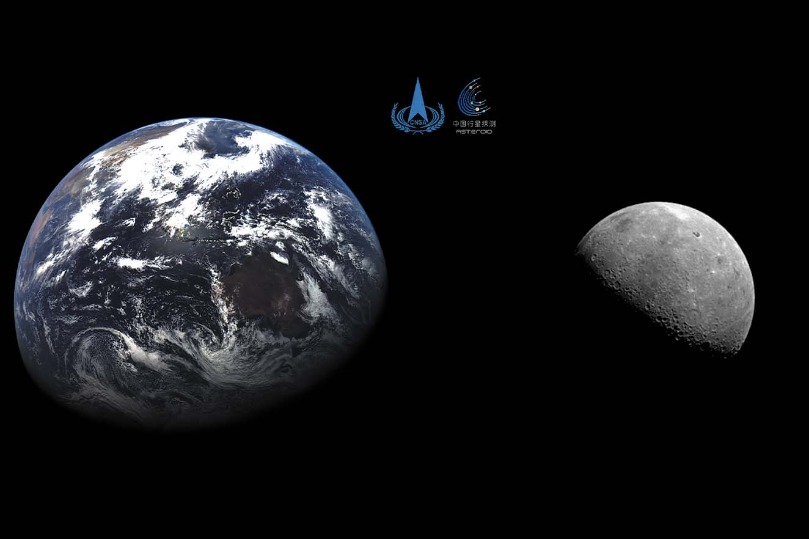The entangled power of BRICS


As representative of the Global South, the group serves as both centrifugal and centripetal force in shaping a new world order
Throughout history, shifts in the world order — whether marked by instability, chaos or realignment — have typically been driven by the dynamics shaped by the rise of emerging powers and the resistance from established ones. Today, we are witnessing a dynamic process marked by mutual challenges, constraints, dependencies and accommodations between dominant and emerging powers. BRICS, a representative of the Global South, is increasingly asserting itself economically, politically and diplomatically in this changing landscape.
Since it was formed, BRICS has advocated multilateralism and international cooperation grounded in the principles of fairness and inclusion. The existing Western-led institutions, along with their governing norms, increasingly reflect an outdated order at a time when industrial production, financial dominance and military superiority are concentrated in the hands of the G7 countries.
The recent landscape of global governance has been characterized by the declining effectiveness of the traditional Western-led multilateral institutions in addressing the major global challenges. The erratic and unstable policy of the United States under Donald Trump's second term as president has further weakened the prospects for global governance and meaningful international cooperation. In this context, the 2025 BRICS summit in Brazil in July will confront the urgent need to offer responses and alternatives to the deepening crisis of the global order.
Worldwide consensus exists today that these great transformations have reshaped the terrain and parameters of social, economic and political relations at both national and global levels. However, there is ongoing debate over whether these changes merely reflect a functional redistribution of comparative advantages within the current world order, or if they signal deeper structural shifts — a "paradigm shift" — requiring a redefinition of the institutions, systems, norms and values that underpin the existing global structure.
As these structural changes are unfolding in the global distribution of economic weight, Global South countries are demanding reform in global governance, calling for fairer representation in a new balance of power. They seek greater participation not only in international institutions but also in shaping the norms and rules that govern them.This movement is consolidated with the emergence of BRICS, formed by the largest economies of the Global South, which began to coordinate their efforts within international institutions to demand reform in global governance.
This evolving global landscape presents both opportunities and challenges for various countries and regions, particularly those of the Global South, but also traditional alliances and certain Global North nations, which are now compelled to recalibrate their geopolitical and geoeconomic strategies. The growing prominence of BRICS is becoming increasingly vital for countries across the Global South. As patterns of economic interdependence shift and the global balance of economic power realigns, nations across Africa, Asia, Latin America and the Middle East, are being prompted to rethink and reposition their economic and political strategies in response to new possibilities and alternatives.
Being frustrated by the lack of opportunities and the uneven development promoted by the current Western-led world order, many Global South countries have expressed their interest in joining the group. As a result, several countries have applied to join "BRICS+".Over 40 nations are reportedly showing interest in applying for BRICS membership.
Although this expansion highlights the potential of BRICS, it also brings challenges, requiring the group to move beyond a "marriage of convenience" driven by short-term cost-benefit analysis and issue-specific alignments. It is a heterogeneous group that must find consensus on a wide range of global issues, which can be difficult depending on the topic. Many of these issues are deeply connected to domestic realities. That is why it is important to uphold the principle of non-interference in internal affairs while simultaneously seeking consensus on key international matters.
During Brazil's BRICS presidency this year, two key challenges stand out: promoting political and economic stability amid US hegemonic decline, and advancing sustainable development among the members.Efforts include reforming global financial systems and increasing the use of local currencies to reduce dependence on the US dollar. A notable step was the May 13 currency swap agreement worth 190 billion yuan ($26.47 billion)between China and Brazil, which sets a precedent for other BRICS nations to strengthen financial resilience and trade through similar initiatives.
The second major challenge for BRICS lies in the diverse development stages of its members. If they progress successfully with BRICS' support, the group will gain strength, cohesion and broader appeal. Programs such as the Partnership on New Industrial Revolution must yield tangible results, helping members build industrial capacity and adapt to Industry 4.0.BRICS must also present an alternative model to Western institutions, with more advanced members, such as China, sharing technology and investing in infrastructure. The New Development Bank supports this by providing accessible financing. However, true development also depends on domestic strategies to the extent that while BRICS can offer support and flexibility, it is ultimately up to each country to seize the opportunities and drive its own upward mobility.
During this period of global order transition, "BRICS+" is confronting the dual challenges of managing instability driven by a waning hegemonic power while reinforcing its internal unity. As the ascent of the Global South accelerates the move toward a multipolar world,"BRICS+" holds the potential to serve as a stabilizing force and foster greater international collaboration. The BRICS group is building and strengthening its relational power through its web of partnerships, common agendas, strategic alliances and joint initiatives. This form of power is important because it enables BRICS to shape global affairs by creating alternative institutions, promoting cooperation, and aligning goals among emerging economies and nations in the Global South.
In summary, the rise of "BRICS+"embodies both centrifugal and centripetal forces within the global system. As a centrifugal force, it challenges the existing Western-dominated order by promoting alternative institutions, introducing competing governance models and intensifying geopolitical rivalries.At the same time, as a centripetal force, it is contributing to global cohesion through deep economic integration, active participation in multilateral initiatives and collaboration on shared global issues.Together, these dynamics illustrate how its emergence is simultaneously pulling the current order in a new direction while also reinforcing interconnectedness — ultimately reshaping the global system from within.
Li Xing is a Yunshan leading scholar and director of the European Research Center at Guangdong University of Foreign Studies and an adjunct professor of international relations at Aalborg University, Denmark. Italo Poty is a senior researcher at the Center for Studies in Contemporary China and Asia at the Institute of Strategic Studies at Fluminense Federal University, Brazil. Li Qing is professor and executive president of the Guangdong Institute for International Strategies. The authors contributed this article to China Watch, a think tank powered by China Daily.
Contact the editor at editor@chinawatch.cn.


































